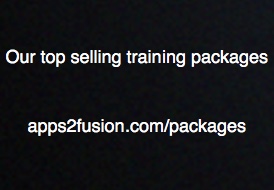In this course, you will learn the core of the Apex programming language and Visualforce markup in order to customize your Force.com applications. You will get hands-on experience building data objects (sObjects) and programmatically retrieving , manipulating, and storing the data associated with those objects. You will write custom logic using Apex triggers and classes, and test that logic using the built-in testing framework. You will explore how Apex code interacts with declarative customizations on the platform, and the nuances of working on a multi-tenant platform. This course is designed for programmatic developers who are new to the Force.com platform, who need to be able to write programmatic customizations to both the business logic and user interface layers using Apex and Visualforce.
Create and modify objects using the declarative interface Write business logic customizations using Apex triggers and classes. Those customizations will use SOQL and DML. Design programmatic solutions that take advantage of declarative customizations Describe how your trigger code works within the basics of the Save Order of Execution Describe some of the fundamental aspects of designing programs on a multi-tenant platform Write Visualforce markup and code to customize the user interface Use the built-in testing framework to test Apex and Visualforce
Describe the capabilities of objects on the Force.com platform Create a custom object Create custom fields Create relationship fields
Create formula fields Create roll-up summary fields Describe the capabilities of record types
Describe key aspects of Apex that differentiate it from other languages, such as Java and C# Describe why Apex transactions and governor limits must be considered when writing Apex Execute simple Apex Use the sObject data type, the primitive data types, and basic control statements in Apex
Write a basic query using Salesforce’s query language, SOQL Process the result of a query in Apex Create a query dynamically at run-time
Describe a relationship query Write a query that traverses a child-to-parent relationship Write a query that traverses a parent-to-child relationship
List the differences between the ways you can invoke DML operations Write Apex to invoke DML operations and handle DML errors
Describe what a trigger is used for Describe the syntax of a trigger definition Use trigger context variables
Describe how Apex classes are used Define an Apex class Determine what data an Apex class can access
Describe key points in the Order of Execution Describe how triggers fit into and can be impacted by the Order of Execution Describe the lifecycle of an Apex Transaction Describe the memory lifecycle for static variables
Describe Apex’s testing framework Create test data Write and run an Apex test
Describe practices for writing code that is easy to maintain and extend Write triggers and classes that assume batches of data as input Write code that works efficiently with the database, both in querying and using DML
Determine your code coverage percentages Create tests using best practices
List declarative mechanisms you can use to implement complex business logic, for what types of problems they are best used, and their limitations Describe ways in which you can use declarative functionality to improve your programmatic solutions
Preview
By the end of this training you will learn to:
Course Contents
Day 1
Objects and Fields
Work Effectively with Custom Objects and Fields
Day 2
Programming with Apex
Use SOQL to Query Your Org’s Data
Day 3
Use SOQL to Query Parent-Child Relationships
DML Essentials
Trigger Essentials
Day 4
Classes
The Save Order of Execution and Apex Transactions
Day 5
Testing Essentials
Testing Strategies
Day 6
Strategies for Designing Efficient Apex Solutions
Trigger Design Strategies
Apps2Fusion



